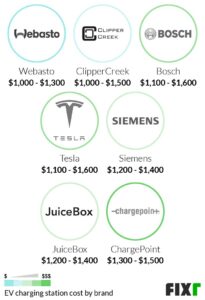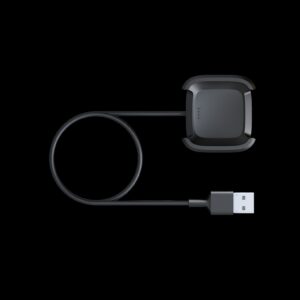Looking for the right charger for your phone? Wondering, “What type of charger does my phone use?” Well, worry no more! In this article, we’ve got you covered with all the information you need to keep your phone juiced up and ready to go. From the various charger types to compatibility factors, we’ll guide you through this sometimes confusing world of charging your device. So, let’s dive in and find out exactly what type of charger your phone needs!
What Type of Charger Does My Phone Use?
In today’s digital age, our smartphones have become indispensable tools for communication, entertainment, and productivity. We rely on them for various tasks throughout the day, and one thing that keeps them powered and ready to go is a charger. But with different phone models and manufacturers, it can be confusing to determine what type of charger your phone uses. In this article, we will delve into the world of phone chargers, exploring the various types and helping you find the perfect charger for your device.
Understanding Charging Ports
Before we dive into the different types of chargers, it’s important to understand the various charging ports commonly found on smartphones. While there are several types of charging ports available, the most prevalent ones are:
1. Micro USB: This is one of the most common charging ports found on Android smartphones. It has a distinctive trapezoidal shape and is smaller than a USB-A port. Micro USB ports are known for their durability and have been widely adopted by manufacturers.
2. USB-C: USB-C is a newer and more versatile charging port that has gained popularity in recent years. It features a symmetrical oval-shaped design and offers faster charging speeds and data transfer rates compared to Micro USB. USB-C ports are reversible, making it easier to plug in your charger without worrying about the orientation.
3. Lightning: Exclusive to Apple devices, the Lightning port was introduced with the iPhone 5 in 2012. It is a proprietary port that offers faster charging speeds and data transfer rates than its predecessor, the 30-pin dock connector. Lightning ports are found on iPhones, iPads, and some iPod models.
Different Types of Phone Chargers
Now that we have a basic understanding of charging ports, let’s explore the different types of phone chargers available:
1. Wall Chargers
Wall chargers, also known as AC adapters or power adapters, are the most common type of charger. They connect to a power outlet and provide a convenient way to charge your phone. Wall chargers usually come with a USB-A port or USB-C port, allowing you to connect your charging cable directly to the charger. Some wall chargers also feature multiple USB ports, enabling you to charge multiple devices simultaneously.
When selecting a wall charger, make sure to check the output specifications. Different chargers offer varying charging speeds, measured in watts (W) or amps (A). Higher wattage or amperage generally means faster charging. However, it’s important to note that the charging speed also depends on your phone’s capabilities and the compatibility of the charger.
2. Car Chargers
Car chargers, as the name suggests, are designed for charging your phone while on the go. They plug into your vehicle’s cigarette lighter or accessory socket and provide a steady power supply to your device. Car chargers typically feature one or more USB ports, allowing you to charge multiple devices simultaneously.
When choosing a car charger, consider factors such as the number of USB ports, charging speed, and compatibility with your phone’s charging port. Some car chargers also come with additional features like built-in cables or compatibility with fast charging technologies.
3. Wireless Chargers
Wireless chargers offer a cable-free charging experience and have gained popularity in recent years. They use electromagnetic fields to transfer energy from the charging pad to your phone, eliminating the need for physical connections. Wireless chargers are compatible with devices that support Qi wireless charging, a standard adopted by various manufacturers.
To use a wireless charger, simply place your phone on the charging pad, ensuring proper alignment with the charging coils. It’s important to note that wireless charging may be slower compared to wired charging methods, especially for fast charging. Additionally, some phone models may require a separate wireless charging receiver or case to enable wireless charging capabilities.
Choosing the Right Charger for Your Phone
When selecting a charger for your phone, there are a few key factors to consider:
1. Compatibility: Ensure that the charger you choose is compatible with your phone’s charging port. Refer to the manufacturer’s specifications or consult the phone’s user manual to determine the correct charger type.
2. Charging Speed: Consider the charging speed offered by the charger. If you value fast charging, look for chargers that support technologies like Qualcomm Quick Charge or USB Power Delivery (USB-PD).
3. Quality and Safety: It’s important to invest in chargers from reputable brands to ensure quality and safety. Cheap and counterfeit chargers may pose risks such as overheating or damaging your device.
4. Portability: If you travel frequently or need a charger on the go, consider compact and portable options like wall chargers with foldable plugs or car chargers with a sleek design.
5. Additional Features: Some chargers offer additional features such as surge protection, multiple USB ports, or compatibility with international voltages. Assess your needs and preferences to choose a charger that best suits your requirements.
In conclusion, understanding the type of charger your phone uses is essential for hassle-free charging and optimal performance. Whether it’s a wall charger, car charger, or wireless charger, consider factors like compatibility, charging speed, and safety when making your purchase. By choosing the right charger, you can ensure that your phone stays powered up and ready whenever you need it.
Remember to always prioritize safety and quality when purchasing chargers, and opt for certified products from trusted brands. Keeping your phone charged and ready will enable you to make the most of its capabilities and stay connected in this fast-paced digital world.
Frequently Asked Questions
What type of charger does my phone use?
Here are some common questions about phone chargers and their respective answers:
What is the most common type of charger for smartphones?
The most common type of charger for smartphones is the USB charger. This type of charger uses a standard USB port to connect to your phone and can be plugged into a computer, wall adapter, or car charger.
Can I use any USB charger for my phone?
In most cases, yes. As long as the USB charger provides the appropriate voltage and current required by your phone, it should work fine. However, it is always recommended to use the charger that came with your phone or a manufacturer-approved charger to ensure compatibility and safety.
Does the type of charger depend on the phone brand or model?
Yes, the type of charger can vary depending on the phone brand or model. While many smartphones use a standard USB charger, there are exceptions. Some brands or models may require a proprietary charger, such as Apple’s Lightning connector for iPhones, or micro-USB or USB-C connectors for certain Android devices.
How can I determine the type of charger my phone uses?
You can often find information about the charger type in the phone’s user manual or on the manufacturer’s website. Additionally, you can visually inspect the charging port on your phone to identify the connector type. If you are unsure, it is best to consult the manufacturer or an authorized retailer.
Can I use a wireless charger for my phone?
If your phone supports wireless charging, you can use a wireless charger instead of a traditional wired charger. Wireless chargers use electromagnetic fields to transfer energy to your phone’s battery. However, it is essential to ensure that the wireless charger is compatible with your phone’s wireless charging standard, whether it is Qi, Powermat, or another technology.
Final Thoughts
In conclusion, determining the type of charger your phone uses is crucial for ensuring effective charging. It is essential to check your phone’s specifications or consult the manufacturer’s website to identify the specific charger required. Some common types include USB-C, Micro USB, and Lightning connectors, all offering different charging capabilities. By knowing what type of charger is compatible with your phone, you can avoid compatibility issues and ensure efficient charging. So, the next time you ask yourself, “What type of charger does my phone use?” refer to your phone’s specifications to find the answer.



